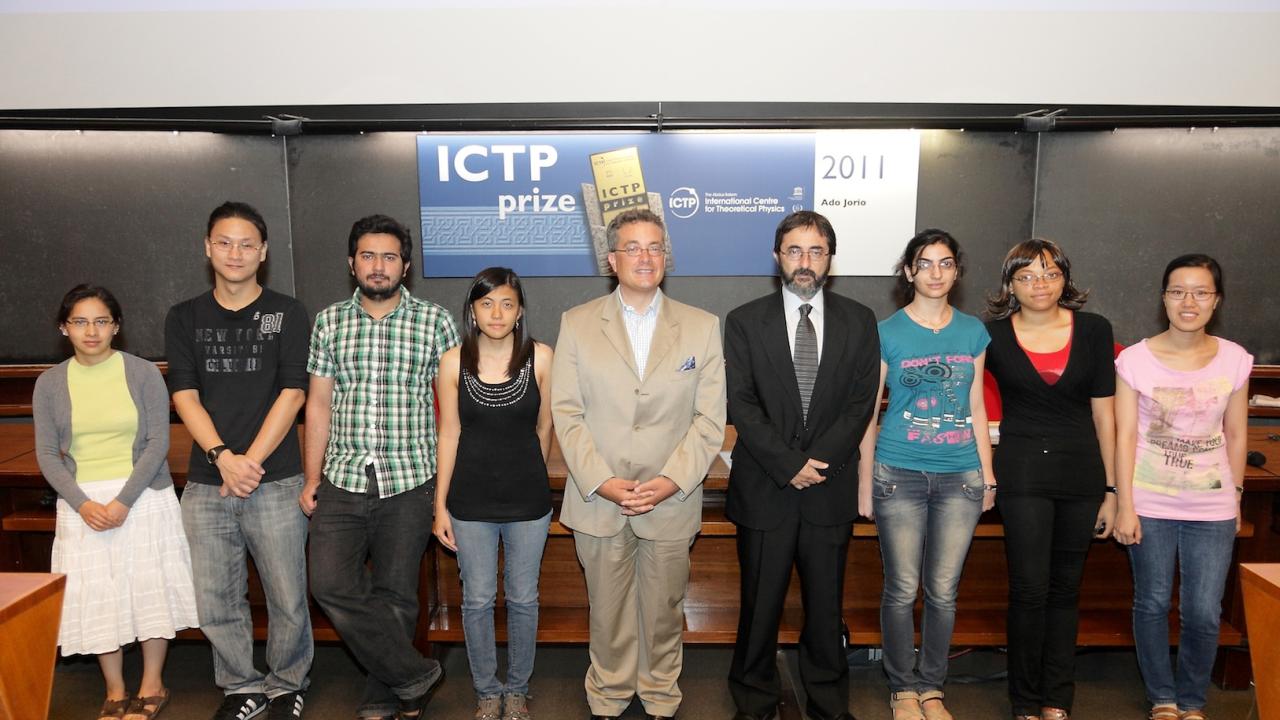
ICTP's role as a successful builder of sustainable science in the developing world took centre stage this week during a visit by the United States Ambassador to UNESCO David Killion.
ICTP, which is a UNESCO category 1 institute and receives part of its funding from the UN agency, welcomed the Ambassador for a two-day visit during which the Centre showcased its international research, training and educational activities. The Ambassador met with scientists, staff and students, and shared the United States' and UNESCO's vision for science diplomacy, indicating ICTP's important role in creating a better world.
"There's incredible work being done here at ICTP that's right in line with UNESCO's fundamental mandate of building peace in the minds of men and women around the world," said Ambassador Killion.
The Ambassador sees the work of ICTP complementing the priorities of the United States in many respects. He cited a 2009 speech that President Obama delivered in Cairo, where he called for developing "science centers of excellence" for the Middle East to encourage that region's development. Ambassador Killion said that ICTP is an example of such a "science center of excellence" for the developing world. Indeed, ICTP has direct connections to SESAME, a synchrotron laboratory in Jordan created with guidance from UNESCO in 2002.
Getting policymakers on board with missions like those of ICTP and UNESCO is often a challenge. Discussing this, Ambassador Killion said that policymakers are often too narrowly focused, viewing investment in science education and research only in terms of its scientific benefit. What policymakers need to understand better, according to the Ambassador, "is the importance of science and scientific discourse to long-term, sustainable economic growth." "The brilliant and innovative minds that science attracts can serve as central forces in shaping developing countries' domestic economic landscapes," said Ambassador Killion. "It's these dynamic scientific and academic cultures that will incentivize the developing world's brightest minds to stay and innovate at home."
Ambassador Killion went on to discuss the important role that UNESCO can play in engaging with policymakers on this issue. "UNESCO by its very nature resides within the intersection of government and scientific knowledge and capacity building," he noted. "UNESCO has to be an important ally of ICTP -- and vice versa -- for disseminating this critical message to policymakers around the world."
Creating more global stability through global science is also important because the world faces a slew of problems that continue to grow, from climate change to overpopulation to famine to pandemic diseases. "The list unfortunately goes on and on," said Ambassador Killion, "and to solve these global problems we need science -- science from all sectors of the planet -- empowering the bright minds of the developing world to generate the solutions for these global challenges, as the ICTP is doing."
















